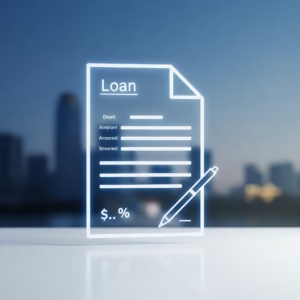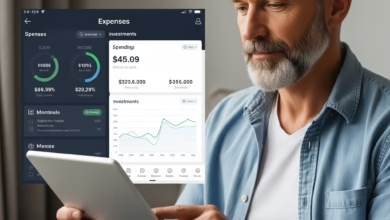
Debt can be a significant obstacle to achieving your financial goals and can cause considerable stress. Fortunately, with proactive planning and mindful habits, you can effectively avoid accumulating unnecessary debt and build a more secure financial future. This guide offers straightforward and actionable advice to help you stay out of the red.
Master the Art of Budgeting: Your First Line of Defense Against Debt

Creating and adhering to a budget is the cornerstone of avoiding debt. It provides a clear roadmap for your spending and helps you live within your means.
- Develop a Realistic Monthly Budget: Track your income and all your expenses, categorizing them into needs and wants. Numerous budgeting apps and spreadsheets can simplify this process. Allocate your funds wisely, ensuring your essential expenses are covered before discretionary spending.
- Distinguish Between Needs and Wants: Carefully evaluate your spending habits and differentiate between essential items and non-essential desires. Prioritizing needs over wants is crucial for avoiding unnecessary purchases that can lead to debt.
- Regularly Review and Adjust Your Budget: Your financial situation can change, so it’s important to review your budget regularly – at least monthly – and make adjustments as needed. This ensures your budget remains relevant and effective in preventing overspending.
Live Below Your Means: Spending Habits that Prevent Debt
Adopting a lifestyle where your expenses are consistently lower than your income is fundamental to staying out of debt.
- Avoid Lifestyle Creep: As your income increases, resist the urge to significantly increase your spending. Maintain a mindful approach to your expenses and avoid unnecessary upgrades or purchases.
- Delay Gratification: Before making non-essential purchases, take a moment to consider if it’s truly necessary and if you can comfortably afford it without going into debt. Often, delaying gratification can lead to realizing you didn’t need the item in the first place.
- Be Wary of Impulse Buying: Marketing and sales tactics can encourage impulse purchases. Before buying something on a whim, give yourself a cooling-off period to determine if it aligns with your budget and financial goals.
Build a Robust Emergency Fund: Your Safety Net Against Unexpected Costs

An emergency fund acts as a financial cushion, preventing you from having to rely on credit or loans when unexpected expenses arise.
- Aim for 3-6 Months of Living Expenses: Gradually build an emergency fund that can cover at least three to six months of your essential living expenses (rent/mortgage, utilities, food, transportation).
- Keep Your Emergency Fund Accessible: Store your emergency fund in a readily accessible, liquid account, such as a high-yield savings account, but separate from your regular spending money.
- Replenish Your Emergency Fund After Use: If you have to use your emergency fund, make it a priority to replenish it as quickly as possible to maintain your financial security.
Be Smart About Credit: Using Credit Responsibly to Avoid Debt
Credit can be a useful financial tool when used responsibly, but it can quickly lead to debt if mismanaged.
- Understand Credit Card Terms and Interest Rates: Before opening a credit card, carefully review the interest rates, fees, and terms and conditions. High-interest debt can quickly become overwhelming.
- Pay Your Credit Card Balances in Full and On Time: Paying your credit card balances in full each month avoids incurring interest charges. Timely payments also help maintain a good credit score.
- Avoid Maxing Out Your Credit Cards: Keeping your credit utilization ratio (the amount of credit you’re using compared to your credit limit) low is crucial for a healthy credit score and prevents you from being heavily reliant on credit.
- Limit the Number of Credit Cards You Have: Having too many credit cards can make it easier to overspend and harder to track your balances. Stick to a few cards that you can manage responsibly.
Set Clear Financial Goals: Staying Motivated to Avoid Debt

Having well-defined financial goals can provide motivation and direction for your spending habits, helping you avoid unnecessary debt.
- Identify Your Short-Term and Long-Term Goals: Whether it’s saving for a down payment on a house, funding your retirement, or taking a vacation, clearly defined goals can help you prioritize your spending.
- Align Your Spending with Your Goals: Make conscious spending choices that support your financial objectives. This can make it easier to say no to non-essential purchases that don’t align with your goals.
- Track Your Progress Towards Your Goals: Regularly review your progress towards your financial goals. This can provide a sense of accomplishment and reinforce your commitment to responsible financial habits.
Seek Financial Education and Advice: Empowering Yourself to Stay Debt-Free
Continuously learning about personal finance and seeking professional advice when needed can significantly contribute to your ability to avoid debt.
- Educate Yourself on Personal Finance Principles: Read books, articles, and reputable online resources to enhance your understanding of budgeting, saving, investing, and debt management.
- Consider Consulting a Financial Advisor: A certified financial advisor can provide personalized guidance tailored to your specific financial situation and help you develop strategies to avoid debt and achieve your financial goals.

By implementing these proactive strategies and cultivating mindful spending habits, you can significantly reduce your risk of accumulating debt and build a more secure and stress-free financial future. Remember that consistency and discipline are key to long-term financial well-being.





